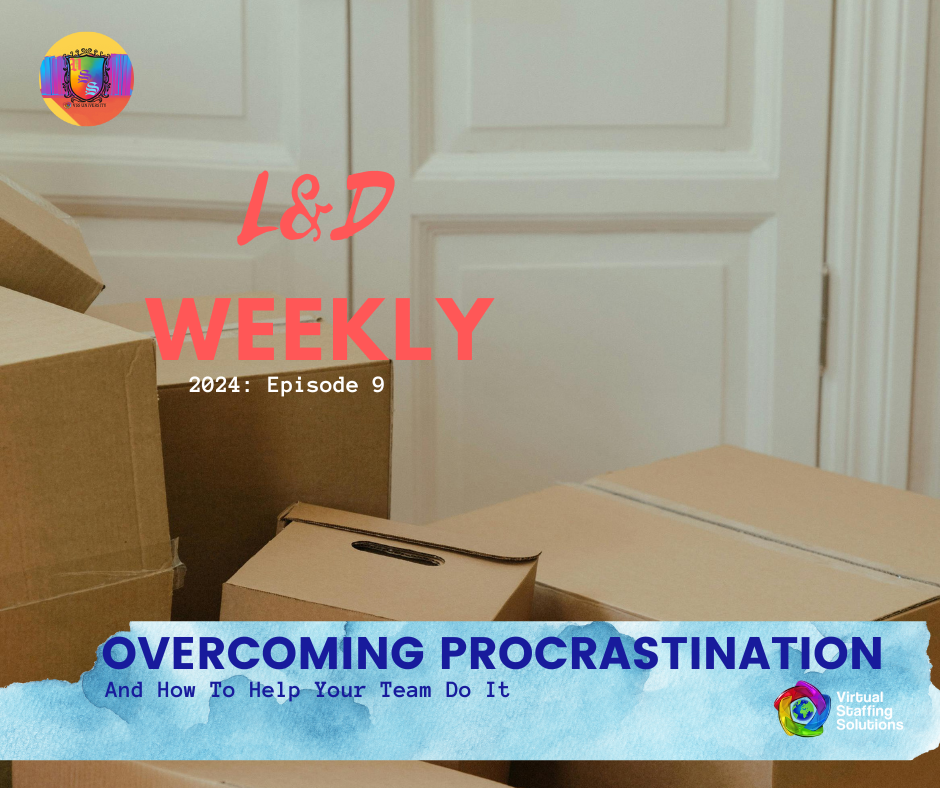🌟 Weekly Microlearning: Overcoming Procrastination in Your Team 🌟
Sent by the L&D Team

Hi Team Leaders!
This week’s microlearning is all about tackling a common workplace challenge: procrastination. While often viewed as a personal habit, procrastination can have broader implications on team dynamics and productivity. Let’s explore effective strategies to help your team manage their tasks more efficiently and reduce procrastination. ⏰
Understanding the Roots of Procrastination
💡 Why We Procrastinate:
- Procrastination can stem from various factors: stress, uncertainty, overload, or even working style.
- It often leads to increased stress, rushed work, and potential errors.
Strategies to Minimize Procrastination
🤔 Encouraging Clarity and Open Questions:
- Ensure your team clearly understands their tasks and feels comfortable seeking clarifications.
- Directly ask if they have all necessary information to proceed with a task.
⏳ Setting Clear Deadlines:
- Define specific due dates for tasks to provide a structured timeline.
- This clarity helps in prioritizing tasks and managing workloads effectively.
🔍 Breaking Down Large Tasks:
- Help your team divide bigger projects into smaller, manageable milestones.
- Setting mini-deadlines for these milestones can make progress feel more achievable.
📅 Efficient Meeting Management:
- Be selective about meeting participants and always have a focused agenda.
- Efficient meetings free up time for focused work.
🌿 Encouraging Regular Breaks:
- Promote a culture
where taking breaks is seen as essential for maintaining productivity.
- Lead by example in demonstrating a healthy work-life balance.
📝 Regular Check-Ins:
- Understanding individual reasons behind procrastination is key.
- Create a supportive environment where team members can discuss their challenges openly.
- Offer solutions tailored to their specific needs, whether it’s workload adjustment or setting incremental goals.
Cultivating a Procrastination-Free Environment
🚀 Empower with Autonomy:
- Trust your team to manage their tasks and encourage them to take ownership of their deadlines.
- Autonomy can often be a powerful motivator against procrastination.
👥 Foster a Supportive Team Culture:
- Encourage team members to support each other in meeting deadlines and managing workloads.
- A collaborative team environment can significantly reduce procrastination tendencies.
📌 Leadership Challenge of the Week: Identify a project or task where your team has been procrastinating. Discuss it in your next team meeting and collaboratively create a plan with clear milestones and deadlines.
Remember, as leaders, our role is to guide and support our team in overcoming hurdles like procrastination, turning them into opportunities for growth and efficiency.
Stay tuned for our next microlearning session. Together, we can build a more productive and proactive team! 🌟